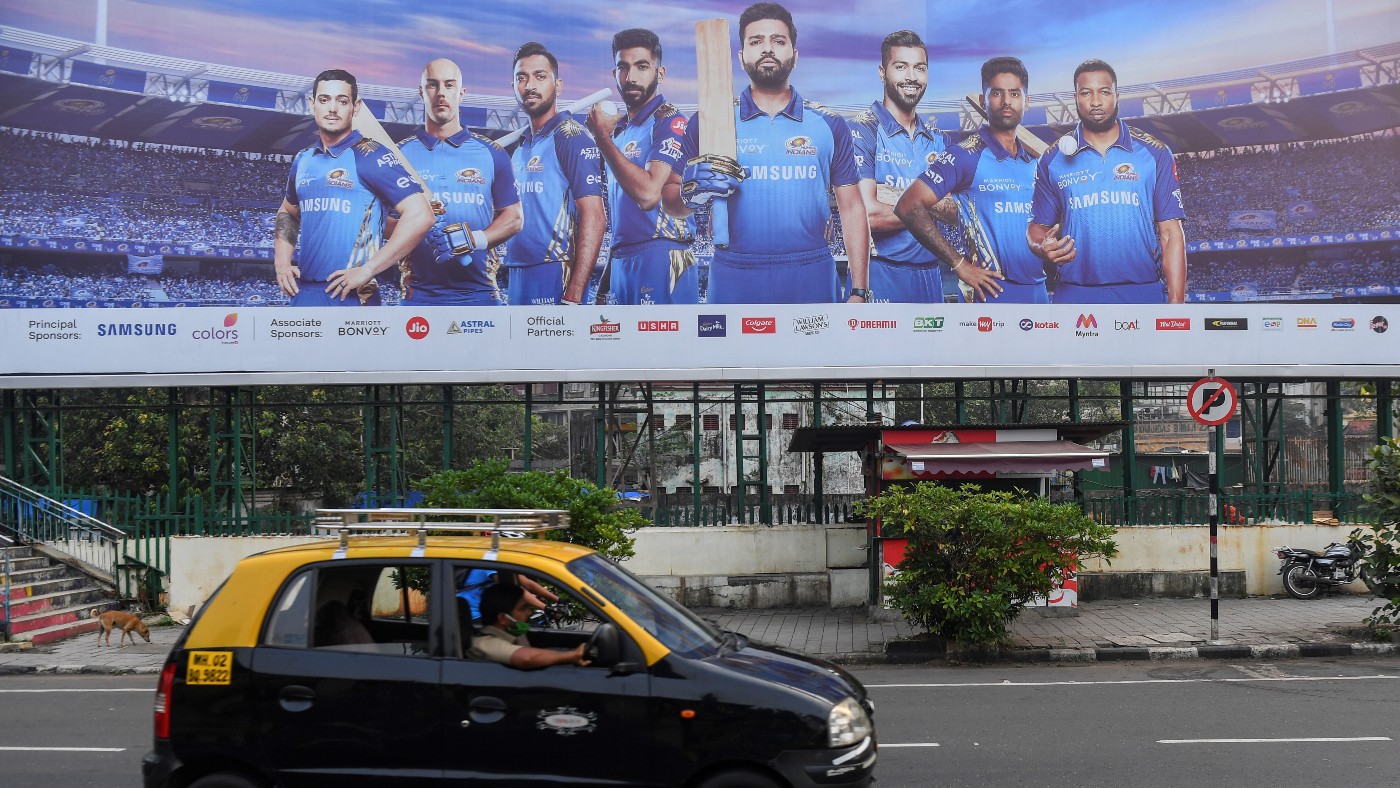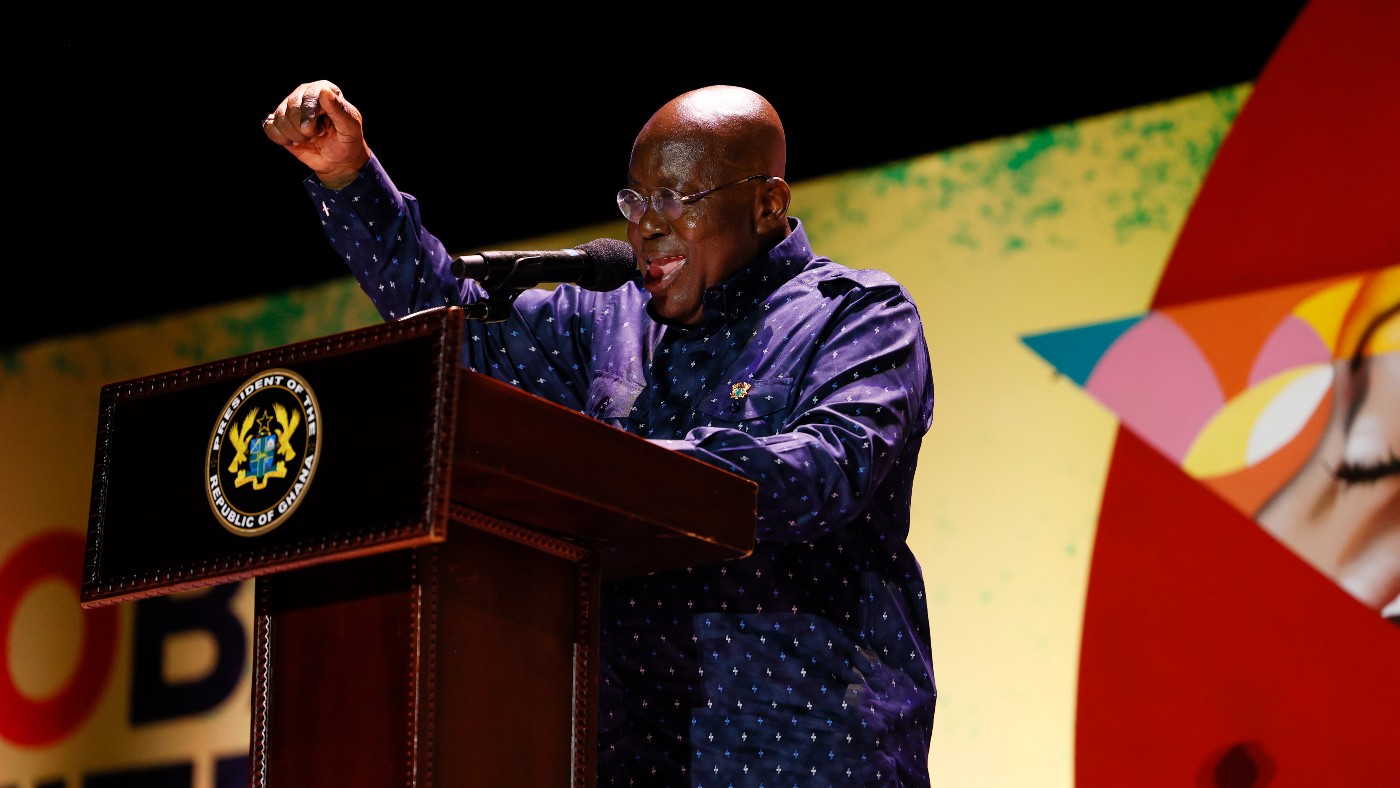The sinister side to India’s fantasy gaming craze
Fantasy gaming is booming in India, despite the country's ban on gambling

A free daily email with the biggest news stories of the day – and the best features from TheWeek.com
You are now subscribed
Your newsletter sign-up was successful
Millions of sports fans around the world seek to strike it lucky by creating virtual teams from popular athletes and tracking their real-life performances in the hope of winning a cash prize. But in India, this form of entertainment appears to be turning into something much more harmful.
Fantasy gaming has gripped the nation, having “exploded in popularity” in recent years, said Al Jazeera. The online gaming industry in India is worth $1.5 billion.
However, experts are concerned that playing fantasy sports apps for fun can quickly descend into a worrying addiction, as players commonly place bets on their teams.
The Week
Escape your echo chamber. Get the facts behind the news, plus analysis from multiple perspectives.

Sign up for The Week's Free Newsletters
From our morning news briefing to a weekly Good News Newsletter, get the best of The Week delivered directly to your inbox.
From our morning news briefing to a weekly Good News Newsletter, get the best of The Week delivered directly to your inbox.
The reasons behind the success of fantasy gaming apps are varied, but India’s “love for cricket has fueled the rise”, suggested the ICFAI Business School in Bangalore. Coupled with the “widespread availability of low-cost smartphones and affordable data plans”, this form of entertainment is open to millions of people, the school added.
Others attribute the boom to the slick and expensive advertising packages that gaming juggernauts have been able to roll out. An advertising report cited by Al Jazeera showed fantasy gaming apps were the “top advertisers on television during IPL-16”, the most recent Indian Premier League cricket competition, with “18 percent of the advertising share”.
Whatever the cause, the industry in India is burgeoning. A Deloitte report shows it is expected “to grow massively” in the coming years – at 30% a year until 2027, the WION news site explained.
Despite the success of fantasy gaming, all forms of gambling in India are technically illegal, as a result of the Public Gambling Act of 1867. However, the industry has thrived in a “grey area” of legislation, said Rest of World, which currently permits certain games provided they are primarily about skill. Fantasy gaming providers insist they are only offering skill-based games. While not everyone agrees, it is the lack of certainty which is proving a “threat”, the website added.
A free daily email with the biggest news stories of the day – and the best features from TheWeek.com
For some, the stakes can be much higher than a simple game of chance. Bhavani, a 29-year-old married woman with two children from Manali, Chennai, used online apps to play card games like rummy. After just a year of playing and betting on her games, Bhavani had “racked up losses that her husband estimated at more than 1 million Indian rupees”, or approximately £9,500, said the Hindustan Times. She told her father she was going to stop playing the games, but “a few hours later” she took her own life.
“It started slowly, with small bets,” her husband told Reuters. “My wife won a few times and then she wouldn’t stop.”
This addiction is as much a psychological issue as it is a financial one, experts say. “It is like an alcoholic who first takes alcohol to get a high, then if he doesn’t take alcohol, he gets tremors,” psychiatrist Lakshmi Vijayakumar told The Quint. “Like that, you have a withdrawal reaction, so you start playing it to get the same high. Your brain tells you that you have to do it.”
Vijayakumar told the news website she sees at least one fantasy gaming addict in her clinic “every day”, indicating the scale of the problem health professionals are facing.
While India grapples with the impacts of fantasy gaming, the issue extends across the globe. Video games have now become an internationally recognised addiction, with the World Health Organization adding “gaming disorder” to its list of conditions. It is defined as people giving priority to gaming “to the extent that it takes precedence over other interests and daily activities”.
Many of those affected are keen to see world governments crack down on the issue to save those who have been taken into the clutches of gaming and gambling, courtesy of the large corporations who continue to rake in big profits.
Some Indian states are already anxious to tackle the problem. Andhra Predesh, Telangana, Odisha and Nagaland are among those states to have banned online sports games.
The country’s Goods and Services Tax Council is taking a hardline stance to crack down on the industry’s toxic impacts. A new 28% indirect tax on online gaming, casinos and horse racing is not intended to hurt the industry, according to the country’s finance minister. However, it will mean operators have to take on more financial responsibility for the money they collect from players.
The council has said the decision is motivated by a desire to show there is “no distinction” between games of skill and games of chance, a loophole previously exploited by fantasy sport companies.
Predictably, there has been resistance from gaming giants. The decision is a “major setback” that could substantially “stunt the growth of a booming gaming industry”, said Bloomberg. It has been described as “unconstitutional, irrational and egregious” by Roland Landers, chief executive of the All India Gaming Federation.
While legislative arguments roll on, for those immersed in the world of gaming and their families, altogether different tensions are arising.
Lalji Dwivedi, a farmer from Sidhhi in the central Indian state of Madhya Pradesh, is frequently drawn into arguments with his teenage son, who is addicted to fantasy gaming. His cricket-mad 16-year-old gets “agitated” by his father’s reluctance to give him money, and Dwivedi often finds himself eventually handing over money earned from his wife’s job as an agricultural labourer, alongside their savings, said Al Jazeera.
“I don’t earn enough money to feed my family,” he told the news website. “If my son keeps losing this much money, I don’t know how we will manage to survive.”
This article first appeared in The Week’s Global Digest newsletter. Sign up for a preview of the international news agenda, sent to your inbox every Monday.
Rebekah Evans joined The Week as newsletter editor in 2023 and has written on subjects ranging from Ukraine and Afghanistan to fast fashion and "brotox". She started her career at Reach plc, where she cut her teeth on news, before pivoting into personal finance at the height of the pandemic and cost-of-living crisis. Social affairs is another of her passions, and she has interviewed people from across the world and from all walks of life. Rebekah completed an NCTJ with the Press Association and has written for publications including The Guardian, The Week magazine, the Press Association and local newspapers.
-
 ‘Poor time management isn’t just an inconvenience’
‘Poor time management isn’t just an inconvenience’Instant Opinion Opinion, comment and editorials of the day
-
 Bad Bunny’s Super Bowl: A win for unity
Bad Bunny’s Super Bowl: A win for unityFeature The global superstar's halftime show was a celebration for everyone to enjoy
-
 Book reviews: ‘Bonfire of the Murdochs’ and ‘The Typewriter and the Guillotine’
Book reviews: ‘Bonfire of the Murdochs’ and ‘The Typewriter and the Guillotine’Feature New insights into the Murdoch family’s turmoil and a renowned journalist’s time in pre-World War II Paris
-
 Pope aide under fire for 'mystical orgasms' book
Pope aide under fire for 'mystical orgasms' bookTall Tales And other stories from the stranger side of life
-
 Thieves who stole shopping bag in for big disappointment
Thieves who stole shopping bag in for big disappointmentTall Tales And other stories from the stranger side of life
-
 Woman has one in 50 million pregnancy
Woman has one in 50 million pregnancyTall Tales And other stories from the stranger side of life
-
 Locals speculate about aliens in Wales
Locals speculate about aliens in WalesTall Tales And other stories from the stranger side of life
-
 The spiralling global rice crisis
The spiralling global rice crisisfeature India’s decision to ban exports is starting to have a domino effect around the world
-
 Netanyahu’s reforms: an existential threat to Israel?
Netanyahu’s reforms: an existential threat to Israel?feature The nation is divided over controversial move depriving Israel’s supreme court of the right to override government decisions
-
 A country still in crisis: Lebanon three years on from Beirut blast
A country still in crisis: Lebanon three years on from Beirut blastfeature Political, economic and criminal dramas are causing a damaging stalemate in the Middle East nation
-
 Ghana abolishes the death penalty
Ghana abolishes the death penaltyfeature It joins a growing list of African countries which are turning away from capital punishment